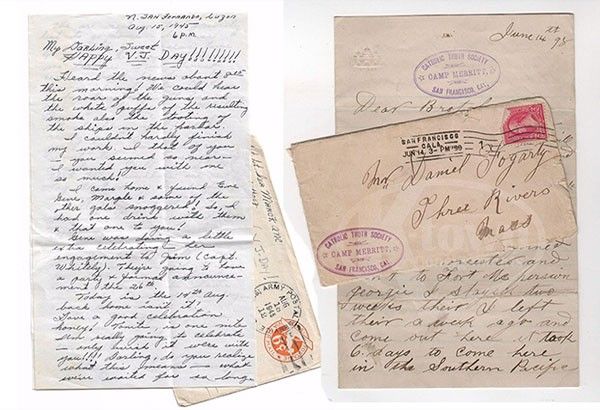A scavenger’s finds

Last week’s piece on my “passion for the past” apparently struck a positive chord with my readers — including a couple of friends who also happen to be professional historians, the eminent professor Bernardita Churchill and my UP neighbor Maris Diokno.
To both friends, I once again affirm that I am not a historian or a scholar. A true scholar of history will seek to palpate and to understand the full context of things — not just of objects but of actions, decisions, and ideas; he or she will be guided by some workable theory of human and social behavior, and a disciplined commitment to the truth; and the past could be important less for its own sake than as a window on the present and the future.
I appreciate and respect all these considerations, which is why I know and acknowledge that I can’t live up to them, at least not at the moment. For now, my most honest self-description would be that of a scavenger (“fetishist” also comes to mind), not unlike a cat who drags in interesting objects off the street — sometimes gruesome, sometimes delightful. I rummage through other people’s leavings, and the material object is my prize; whatever else it leads to — some story, some insight, some unforeseen discovery — is pure bonus.
That’s applied to my vintage pens and books, some of which turned out to have been owned by famous or important persons. But some of my most interesting finds on eBay have involved the most common people and the most ordinary — and therefore the most plaintive and often poignant — revelations.
This is no truer than in the letters I come across on eBay, likely seen by many as the leftovers of estate sales, after all the valuable furniture, silverware, and knick-knacks have been carted away.
There were these letters, for example, which I saw last November, written by a teenager named J. R. Oyco (at least that’s what I can make of the signature, but I could be wrong) from Bacolod to Forrest J. Ackermann (1916-2008), whom sci-fi fans will recognize as one of the pioneers of the genre.
What’s amazing is that the letters are from 1933-34, when Ackermann himself was no more than 18, so these were two teenagers chatting across the ocean in longhand about what today would be speculative fiction. “Three days ago,” Mr. Oyco writes, “I finished reading the April Astounding Stories and enjoyed the swell stories it had — from H. V. Brown’s cover to the advertisement on the last page…. By publishing these kinds of stories, they give authors a chance to show their talents and imaginations and stimulate interesting reactions from the readers themselves.” Apparently Ackermann had responded to an earlier letter because J. R. thanks him for the gift of a magazine.
A letter dated June 14, 1898, comes from a soldier named Humphrey Sullivan, who’s in San Francisco on his way to war in the Philippines, to his brother-in-law in Massachusetts. He’s trained in Georgia and has more drills to do before shipping out, but in the meanwhile, he writes, “I am writing this letter where mass is celebrated every morning it is a blessing for the Catholic to have this society [the Catholic Truth Society in Camp Merritt] here. I am in a hurry I will have to go to drill.”
On Aug. 15, 1945, a WAC nurse writes “My Darling, Sweet” from San Fernando, Pampanga: “Happy V. J. Day!... Today is the 14th Aug. back home isn’t it? Have a grand celebration honey! Tonite is one nite I’m really going to celebrate — only wish it were with you!!!!”
And so on go the letters and the stories, many of which read better than fiction, written by the Parkers, Sheaffers, and Esterbrooks now lying still and silent in my collection. In many instances, I haven’t even had to buy these documents — it’s enough to read them online and save them for posterity on my computer.
These objects affirm, for me, that the past happened, and more than that, that the past will be remembered. It may not matter to me when I’m gone — which, in my darkest musings, could mean that I will no longer have any sense of “me” or of time itself — but it matters to me now, to know that our words and deeds bear consequences, and that we will all leave some trail behind. And so I should write and act with that trail aforethought — so someone, a century hence, will be happy to find a book I wrote, or some note I scribbled, and smile at the memory.
* * *
Email me at jose@dalisay.ph and visit my blog at www.penmanila.ph.



















